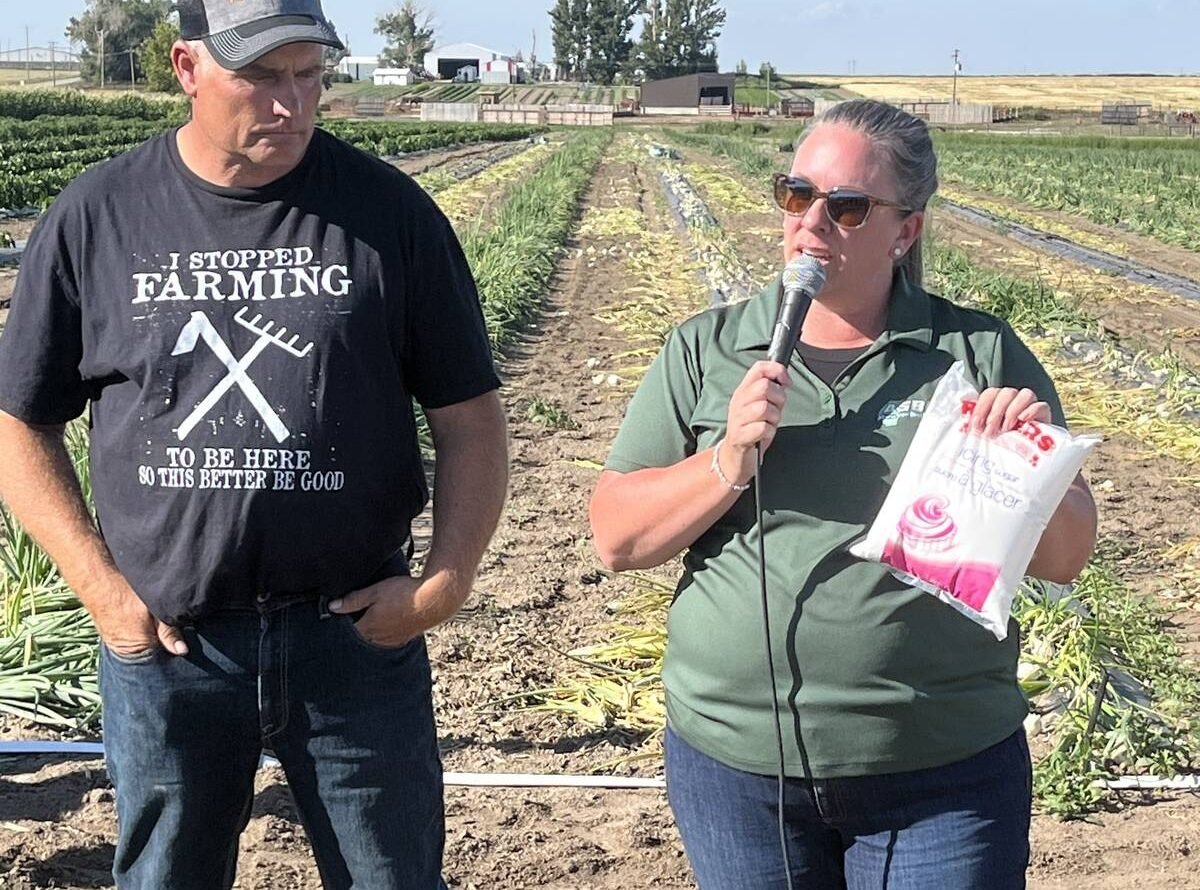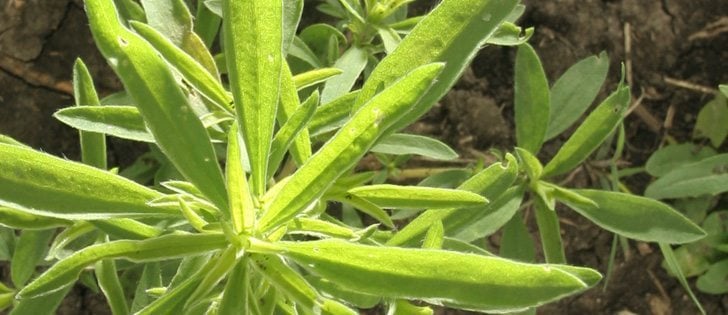Hugh Beckie’s prediction has come true: glyphosate resistance has continued to spread and the first resistant weed on the Prairies is kochia.
Beckie, a scientist with Agriculture Canada, has confirmed that kochia pulled from three chem-fallowed fields in southern Alberta that had received multiple applications of glyphosate is resistant to the popular Group 9 herbicide.
His message to producers: now that it’s here, it’s here to stay and it will spread. The tumbleweed moves quickly, producing more than 10,000 seeds and covering kilometres a day.
Read Also

Alberta’s beets a sweet domestic segment in Canada’s sugar supply
The sugar beet industry is showcased during a Farm to Table tour, as Taber features the last remaining sugar beet processing plant in all of Canada.
Resistance evolves after the repeated use of a single herbicide without adequate culture weed management. The susceptible weeds are killed while resistant weeds are left behind to reproduce.
Beckie said that based on previous studies, all kochia is already considered resistant to Group 2 herbicides.
“Field-to-field spread of glyphosate-resistant kochia is likely going to be rapid, and so don’t feel sorry for those three farmers, because if Group 2-resistant kochia is any indicator, I think all of us will be dealing with glyphosate-resistant kochia within 20 years,” said Beckie, who made the announcement at last week’s Crop Production Week in Saskatoon with colleague Bob Blackshaw.
Satellite images shown at the conference indicate the fields are near the Alberta communities of Warner and Milk River, although it’s unknown whether the resistance was selected there or blew into the region.
Beckie was alerted to the case in August, and when he saw the “linear patterns” of kochia, he knew what he was looking at.
His team retrieved 15 plants from each field — “that’s all the truck could hold” — and took them back to the lab. The plants were grown out for seed and the offspring were grown and sprayed at an eight centimetre height.
The tests proved positive for glyphosate resistance.
“Even at the highest rate we had about 50 percent survival,” said Beckie, which he called a moderate level of resistance.
“In practical reality, a farmer cannot control these populations within a reasonable rate of glyphosate,” he said.
Monsanto, which makes glyphosate-based Roundup and Roundup Ready crops, said the weeds developed from a crop rotation that didn’t include regular use of Roundup Ready crops, which Beckie confirmed aren’t likely to be widely grown in the area.
Monsanto argues that resistance can be managed with proper agronomic practices, tank mixes and cultural weed control methods.
“The effective use of Roundup agriculture herbicides and Roundup Ready crops has continued in areas where glyphosate resistance has occurred in the past and we have some very knowledgeable people looking into this issue. I am confident in our ability to present good options to the growers in the region,” Sean Dilk, technology development manager with Monsanto, said in a news release.
Beckie said a Group 4 herbicide such as dicamba is an option for producers.
“The thing is they have to add something with glyphosate that will control the glyphosate-resistant populations,” said Beckie.
He said Group 4 or 6 herbicides, previously identified for Group 2-resistant kochia, remain an option for wheat producers.
“But clearly we need more research this coming year on fine tuning or developing more recommendations for growers in various cropping situations.”
Agriculture Canada has started a preliminary survey of 50 samples collected within a 20 km radius of the original three fields. Beckie is expecting further cases from the area.
While this is the first case of glyphosate tolerance in Western Canada, there are 21 confirmed cases worldwide dating back to the mid-1990s. This is the third case of glyphosate tolerance in Canada, joining giant ragweed and Canada fleabane discovered in southwestern Ontario.
Glyphosate-tolerant kochia has already been found in Kansas, Nebraska and Colorado, with suspected instances in Montana and North and South Dakota.
“It’s very difficult in any weed species to drive the seed bank to extinction,” Beckie said. “This is nature we’re dealing with, so it’s a bit of a life sentence.”















